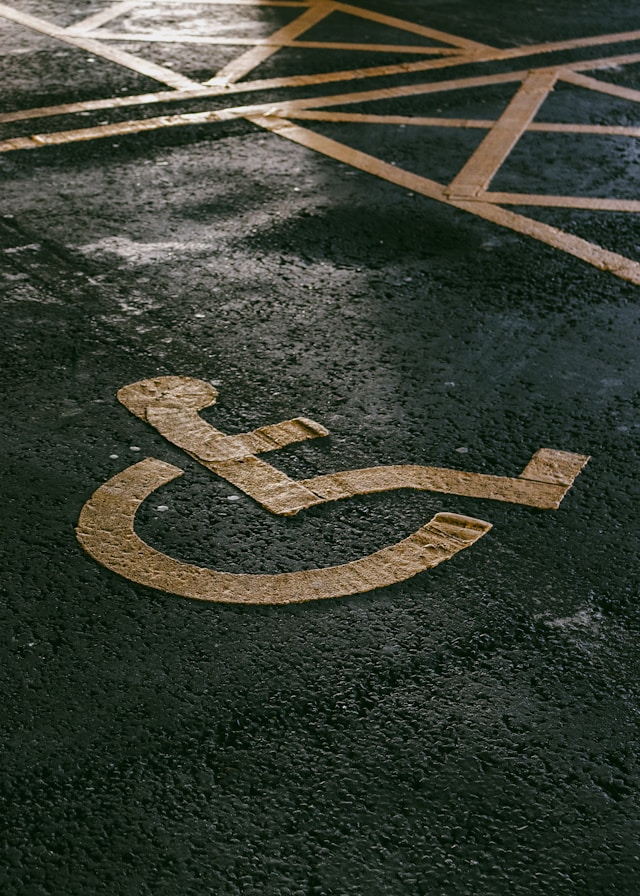A fantastic driveway adds the finishing touch to your home or business premises.
It creates a breath-taking first impression, unites your design aesthetic and can even add around 5% to the value of your property.
There are plenty of driveway surfacing options to consider when planning a driveway, such as asphalt, concrete, block paving, gravel and resin-based surfaces.
But each material has different levels of performance in the various UK weather conditions.
So depending on where you live, certain materials can last longer or require less maintenance than others.
To help you make the right choice for where you live, let’s take a look at how different UK weather conditions can affect your driveway – as well as the best and worst materials for each.
The UK isn’t typically known for being a hot country.
But during the summer heatwave of 2022, temperatures reached a record high of 40.3oC! So it’s clear that high temperatures are very possible.
And even under normal summer conditions, your driveway can still get incredibly hot.
For example, if your driveway has no shade or protection from prolonged sun exposure, 20oC ambient temperatures can heat a dark-coloured driveway up to over 50oC!
As the temperature increases, it causes objects to expand. The same is true of your driveway.
These expansions can cause your driveway to crack, creating potholes that can damage cars or trip people up.
Similarly, intense heat can make certain materials go soft.
If you park a heavy vehicle on your driveway, especially for long periods of time, the weight can deform the hot driveway surface and cause permanent damage.
Lastly, even if your driveway surfacing material resists heat, extensive sun exposure can cause the colour to fade.
This can ruin the aesthetic appeal of your driveway and make your entire property seem less inviting.
Just as hot weather causes surfaces to expand, cold weather causes them to contract.
This can have a similar effect in causing cracks and surface damage.
But shrinkage isn’t the only risk of cold weather.
If you experience heavy snowfall, you’ll need to remove it from your driveway.
However, careless shovelling can cause additional damage to certain driveway surfacing materials.
While you could use salt, grit or deicing chemicals to melt snow and ice instead, these can also cause damage.
The further north you travel in the UK, the greater the risk of cold, ice and heavy snowfall.
So if you live towards the north, choosing a cold-resistant driveway surfacing material can help your driveway last much longer.
The UK is famous for wet weather.
In fact, in 2023 there were over 170 days with 1mm or more of rainfall!
As such, picking a driveway surfacing material that performs well under heavy rain is a good idea.
When rain pools on the surface of your driveway, it makes it more slippery.
This can be a hazard for vehicles and foot traffic.
Worse still, rain can erode the sand and joining material between certain types of surfacing.
And it can encourage the growth of weeds that push up from below, creating and expanding cracks.
But the biggest problem is that if rain penetrates your driveway without fully draining, it can cause the surface to weaken.
This is doubly true if the rain is followed by cold weather, as the remaining water can freeze and break your driveway apart.
As an experienced and professional driveway surfacing contractor, Hazell & Jefferies Ltd can install effective drainage systems when laying your driveway. So you can protect against water damage no matter which material you choose.
You might not think that wind could harm a durable driveway surface.
While this is partly true, strong winds can drag branches and other debris across the surface, which can cause damage.
Similarly, materials that aren’t tightly sealed could blow away.
Mountainous areas and coasts tend to be much windier than low-lying inland areas.
So if you live towards the north or along the edges of the UK, you might need to consider how strong winds could affect your driveway.
While the UK experiences fairly changeable weather conditions, they don’t tend to be particularly extreme.
Even in Europe, our country isn’t as hot as Spain or as cold as Germany. And we’re not as wet as Switzerland or as windy as the Netherlands, either.
In other words, you can make any driveway materials work no matter where you live in the UK – provided you partner with a knowledgeable and established driveway surfacing contractor.
The driveway experts at Hazell & Jefferies Ltd have spent more than 50 years laying high-quality driveways for homeowners and businesses across the country.
If you choose a non-permeable driveway surfacing material, we also install an effective drainage system to protect against heavy rainfall. We can seal your driveway to protect it against extreme temperatures, strong winds and UV damage too.
And if your surface ever gets damaged, we can return to perform fast, long-lasting driveway repairs that restore it to top condition.
From our headquarters in Oxford and Reading, we deliver weather-resistant driveways throughout Didcot, Abingdon, Wallingford, Henley-on-Thames and far beyond.
Contact us today for your free quote, and get a high-quality driveway that you can enjoy for years to come – whatever the weather!

